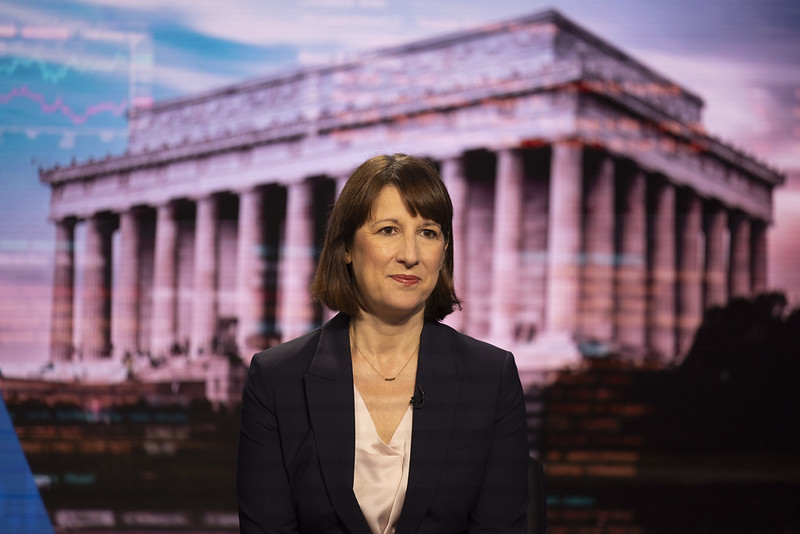
The Chancellor says next week’s Budget will be an economic “reset” for the UK and is expected to outline changes to the country’s debt rules that will allow the government to spend up to £50bn extra on infrastructure projects.
Rachel Reeves was speaking ahead of a two-day trip to the International Monetary Fund and World Bank annual meetings, less than a week before she presents the Labour Party’s first budget in 14 years on 30 October.
“I’ll be in Washington to tell the world that our upcoming Budget will be a reset for our economy as we invest in the foundations of future growth,” she said in a statement.
“A Britain built on the rock of economic stability is a Britain that is a strong and credible international partner.”
The Chancellor is expected to confirm at an International Monetary Fund later today that the Budget will include a new method for assessing the UK’s debt position that does not depend on debt falling in the final year of a five-year cycle, according to various reports.
She is expected to ditch the existing public sector net debt measure in favour of a public sector net financial liabilities target.
This yardstick takes into account all the government’s financial assets and liabilities, including student loans and equity stakes in private companies, as well as funded pension schemes.
This gives the Treasury a larger base of assets against which to measure its borrowing.
Reeves has said that she has to fill a £22bn black hole left by the previous Conservative administration this year, but just doing this would only be enough “to keep public services standing still”.
She is understood to be drawing up plans to find £40bn of levies and savings in the Budget to avoid real-terms cuts to departments.
A change to the government’s fiscal rules would boost the amount she could spend on investment.
John Charcol mortgage technical manager Nicholas Mendes says that such large-scale spending risks driving “inflationary pressure, especially if it drives demand for materials and labour”, but adds that long-term planning could ease that threat.
Mendes adds: “In the mortgage market, despite the recent uptick we can expect rates to continue their downward trend, with further reductions likely as the Bank of England moves towards more rate cuts.
“Mortgage rates may bottom out in the low 3% range by next year, which would provide welcome relief to borrowers.
“Lower interest rates will help stabilise property prices, which are projected to rise by around 5% in 2025, which is likely to follow a similar increase this year.
“However, borrowers need to recognise that mortgage fixed rates already reflect many of the expected cuts in Bank rate over the next year, and so, I expect the best mortgage fixed rates to bottom out next year in the low 3%.”



